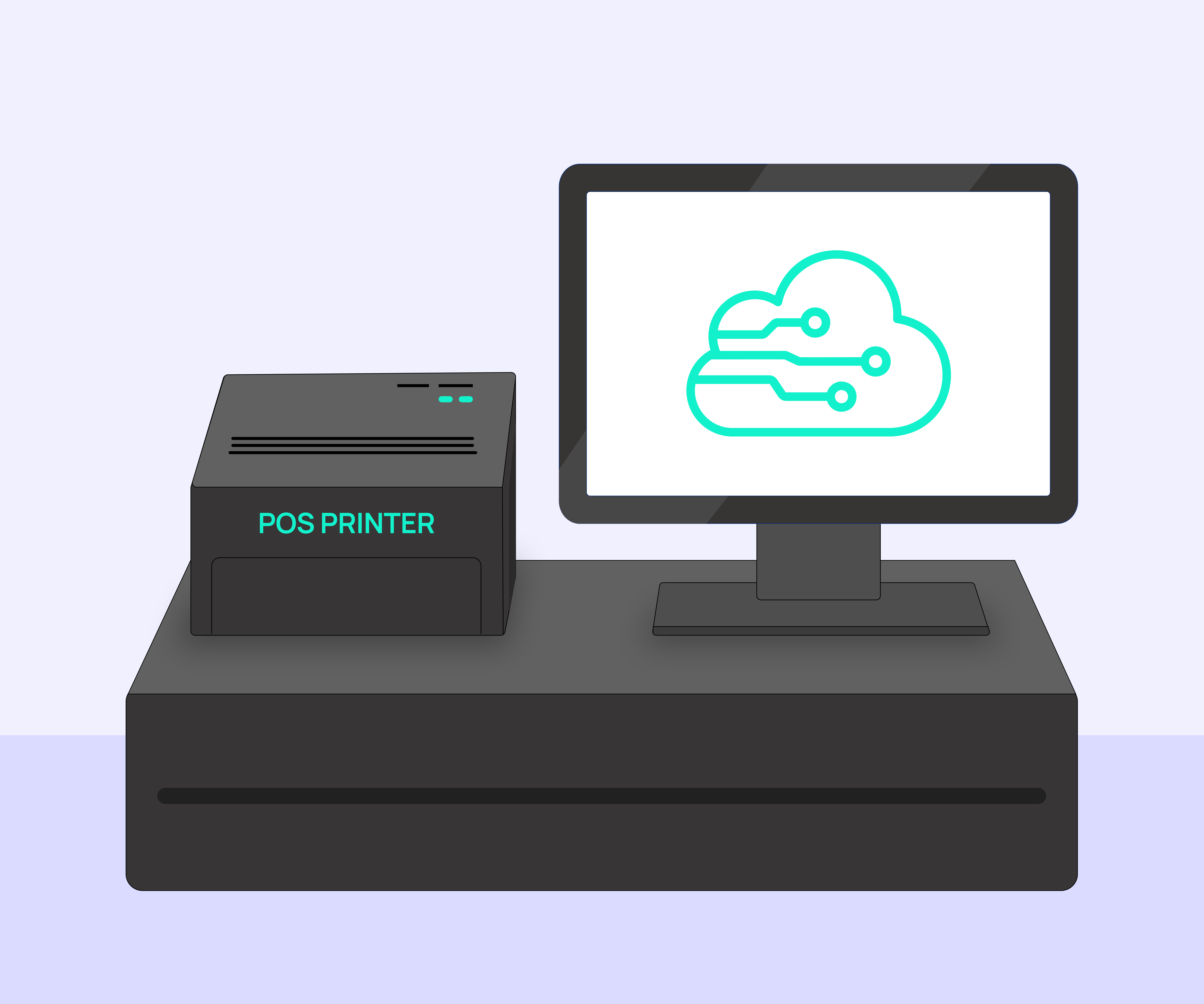B2C E-Invoicing
Fiscal Modernization: How Cloud Modules Are Replacing Legacy Tax Systems

Across the world, governments are rethinking how they manage taxation in a digital economy that constantly keeps evolving. Traditional fiscal systems — once the backbone of tax administration — are struggling to keep pace with the explosion of e-commerce, mobile payments, and real-time transactions. According to online shopping statistics provided by SellersCommerce, an estimated 2.77 billion people around the world shop online as of 2025, which is roughly 33% of the global population.
The challenge is clear: how can governments ensure transparency, compliance, and efficiency in an era when most economic activity happens online?
The answer increasingly lies in cloud-based tax and fiscalization solutions — systems designed to provide real-time data, automatic compliance, and deep integration across digital commerce.
In this article, we’ll explore what cloud tax systems are, how they differ from traditional setups, and how solutions like traceCORE Cloud Fiscal Module are helping governments modernize fiscal administration, close compliance gaps, and increase revenue collection.
What Are Cloud Tax Solutions?
At their core, cloud tax solutions are secure, internet-based platforms that handle tax registration, reporting, and data storage — without the need for on-premise servers or specialized hardware.

Instead of managing local installations that require regular maintenance and manual updates, governments and tax authorities can leverage centralized cloud modules that process, store, and validate fiscal data in real time.
In practice, this means:
-
Instant registration of sales and receipts from connected businesses
-
Automatic compliance updates when tax rules or rates change
-
Integration via APIs with retailers, e-commerce platforms, and POS systems
-
Secure, remote access for tax administrators and auditors
-
Scalable infrastructure that grows with digital transaction volumes
This approach gives tax authorities the visibility and agility needed to regulate a rapidly evolving digital economy.
The Problem with Legacy Fiscal Systems
Many governments still rely on traditional or also known as legacy fiscalization infrastructure — systems that were designed for an earlier era of in-person retail and paper receipts.
These systems often depend on physical fiscal devices, local data storage, and manual reporting. While reliable in the past, they’re now proving inefficient and difficult to scale.
Some of the biggest drawbacks include:
In contrast, cloud-based fiscal modules offer real-time insight, instant updates, and the ability to process millions of transactions simultaneously — all while reducing administrative overhead.
Why Cloud Fiscal Systems Matter for Governments
For tax authorities, the shift to cloud fiscalization isn’t just about adopting new technology — it’s about creating a more transparent, efficient, and responsive tax ecosystem.
Here’s what governments stand to gain:
Improved Revenue Collection
Cloud fiscal modules capture transaction data the moment it occurs, reducing opportunities for underreporting or fraud. This real-time visibility can help increase VAT/GST compliance rates and significantly reduce revenue leakage.
Real-Time Oversight and Analytics
Authorities can access live dashboards showing nationwide sales data, compliance trends, and anomalies — supporting data-driven decision-making and faster detection of irregularities.
Reduced Administrative Burden
By eliminating the need for local installations, governments can lower costs for both tax authorities and taxpayers. Updates are handled centrally, reducing time spent on manual audits and reconciliations.
Faster Policy Implementation
When fiscal rules or tax rates change, cloud systems can push updates instantly to all registered taxpayers, ensuring uniform compliance across the market.
Inclusivity and Accessibility
Small and micro-businesses can participate more easily in the formal economy without needing costly hardware or technical support. This supports broader fiscal inclusion and encourages economic formalization.
Cross-Border Interoperability
Modern tax systems increasingly need to communicate across borders — especially for e-commerce and digital services. Cloud fiscal systems make it possible to align national tax reporting frameworks with international standards and exchange data securely between jurisdictions.
How traceCORE Cloud Fiscal Module Is Changing the Game
One solution leading this transition is traceCORE Cloud Fiscal Module, a tool designed to help both governments and businesses modernize fiscal reporting.
traceCORE Cloud Fiscal Module is a certified cloud-based fiscal system that allows for the registration, verification, and reporting of fiscal receipts directly through the cloud — accessible from computers or smartphones, without the need for dedicated fiscal hardware.

Here are some of its key features:
-
Cloud-based registration and validation of every transaction
-
24/7 access to transaction data for authorities and businesses
-
Integration via API with sales, accounting, and POS platforms
-
Support for multiple devices, including Android and Windows systems
-
Digital receipt options (email, SMS, or messaging platforms)
For governments, this means the ability to track fiscal activity in real time, monitor compliance, and strengthen revenue control — all through a centralized and scalable infrastructure.
Why It’s Especially Relevant for E-Commerce
E-commerce remains one of the most difficult areas for tax enforcement. Billions are lost annually due to unreported online sales, fragmented reporting systems, and cross-border complexities. For example, in Turkey, investigations revealed that over 17,000 individuals selling via e‑commerce platforms failed to declare about $1.1 billion of income between 2021‑24, according to Türkiye Today.
traceCORE Cloud Fiscal Module helps bridge this gap by:
-
Capturing real-time data on online transactions directly from sellers’ systems
-
Providing digital audit trails that make oversight faster and more accurate
-
Reducing compliance barriers for small and medium-sized online merchants
-
Enabling collaboration between tax authorities, payment providers, and e-commerce platforms

By modernizing fiscal infrastructure, governments can ensure that taxation keeps pace with the digital economy — fostering fair competition while securing the revenues needed for public services.
The Broader Impact
The move toward cloud-based fiscal systems represents more than a technology upgrade — it’s a policy evolution.
By adopting traceCORE Cloud Fiscal Module, governments stand to:
-
Increase transparency and trust between citizens, businesses, and tax authorities
-
Reduce tax evasion and administrative inefficiencies
-
Enable data-driven fiscal policy based on real-time economic indicators
-
Strengthen public confidence in tax systems through fair, efficient collection

In short, fiscal modernization isn’t just about technology — it’s about governance that’s responsive, transparent, and future-ready.
Conclusion
As the global economy becomes increasingly digital, fiscal systems must evolve to match its speed and complexity. Cloud-based tax and fiscal modules offer governments a path toward greater compliance, transparency, and efficiency — without the constraints of legacy infrastructure.
Solutions like traceCORE Cloud Fiscal Module show what’s possible: real-time oversight, seamless integration, and simplified compliance for both authorities and taxpayers.
By embracing these tools, governments can increase tax fairness, close compliance gaps, and build more resilient fiscal systems — ensuring that taxation in the digital era is both effective and equitable.
Related Posts
All postsHow a Fiscal Data Operator Can Reduce the Workload of Tax Authorities
By implementing a Fiscal Data Operator (FDO), governments can transform their methods of collecting, analyzing, and reporting fiscal data. Read this post to learn more about this technology and how traceCORE FDO stands out among competitor solutions on the market.


.webp)
